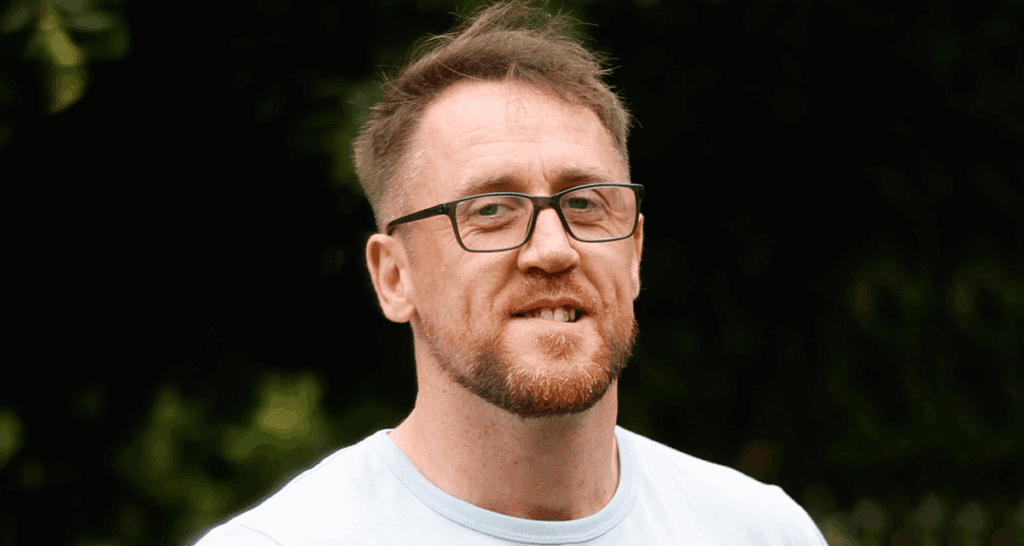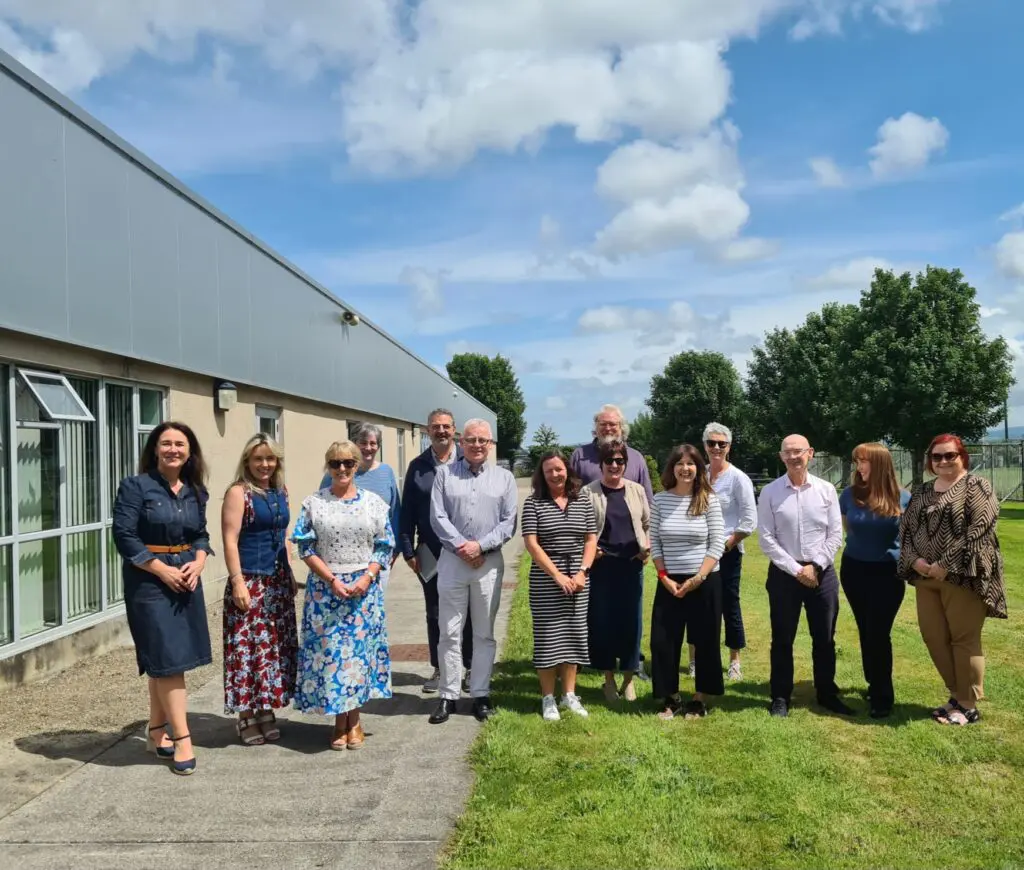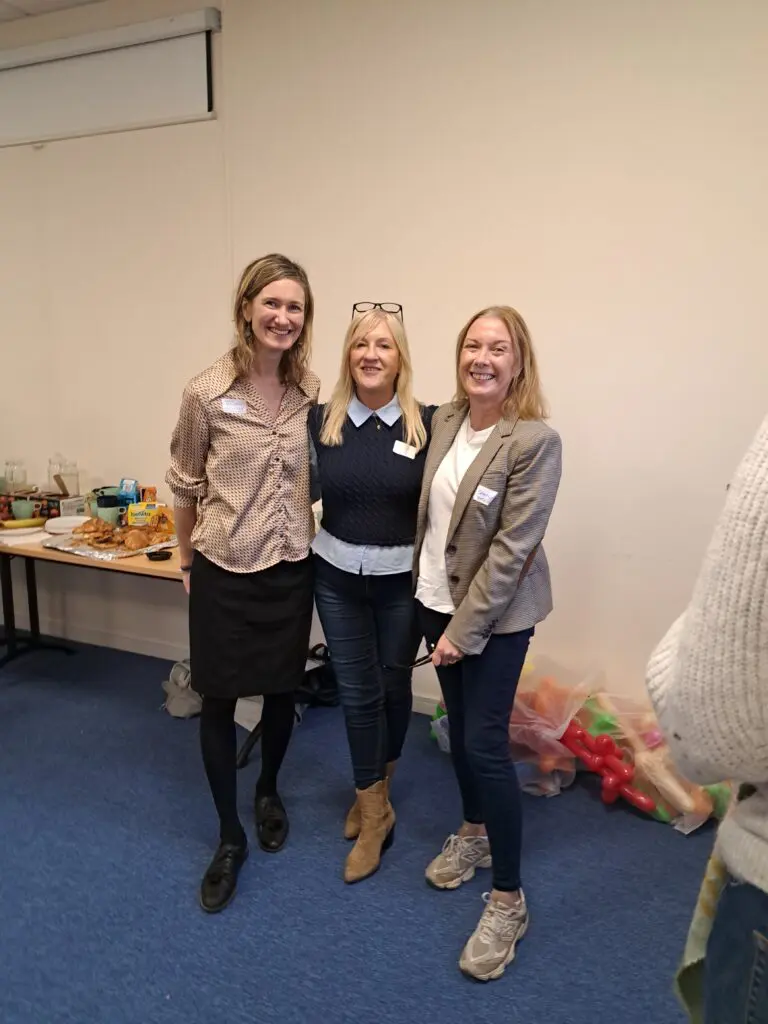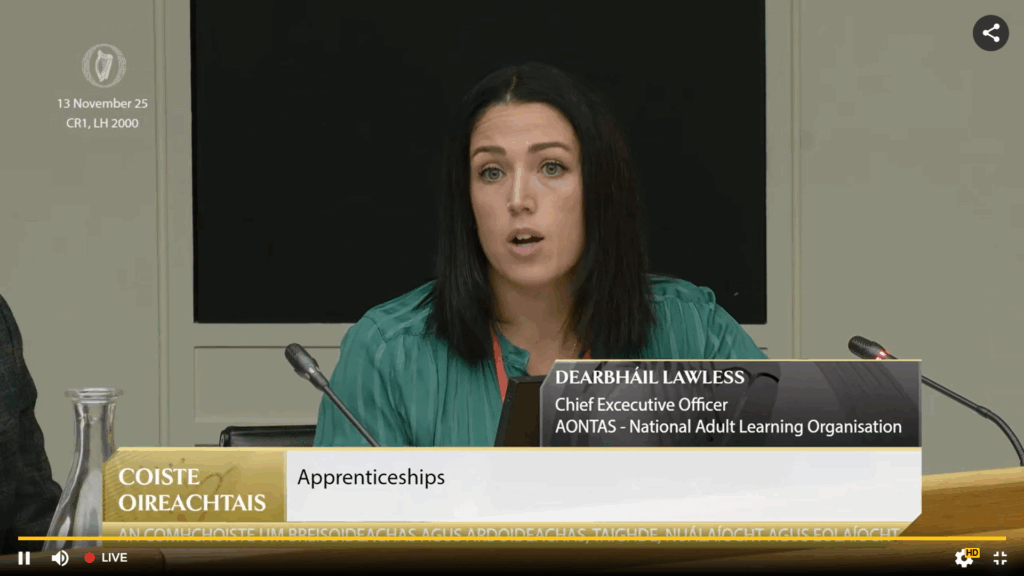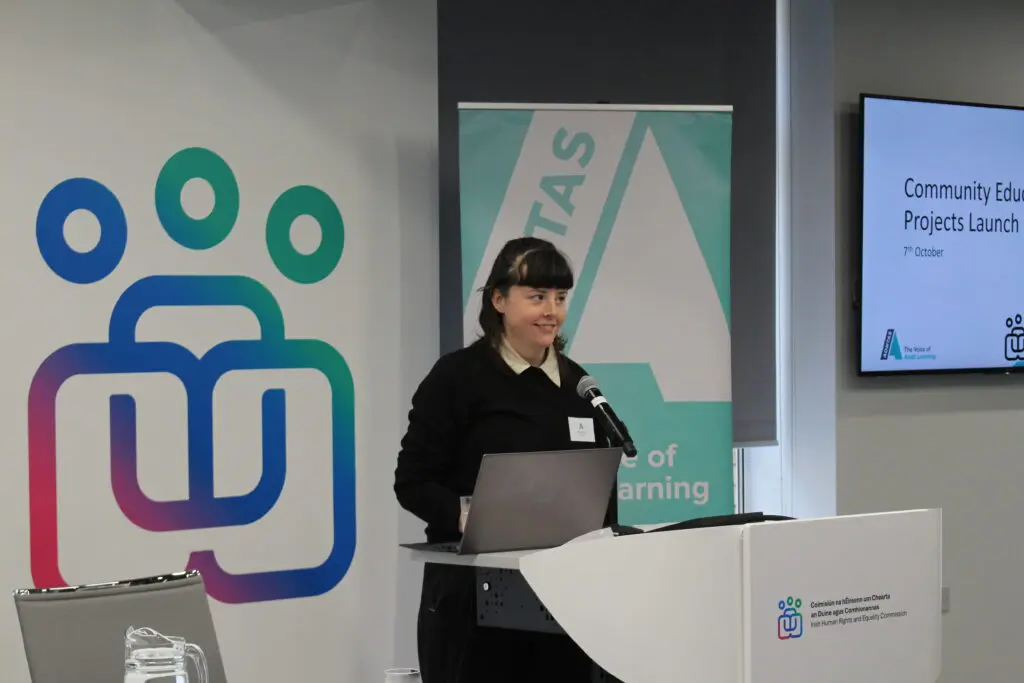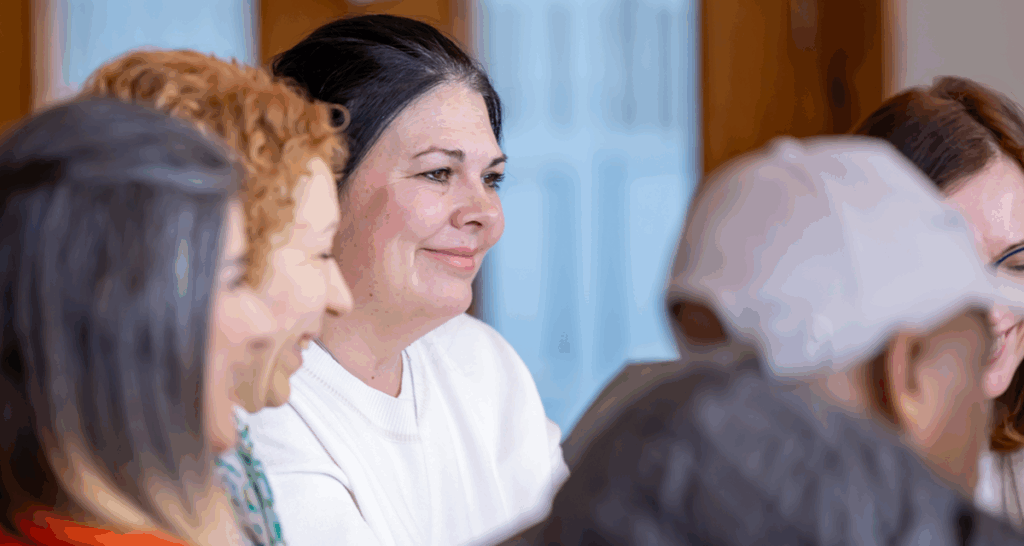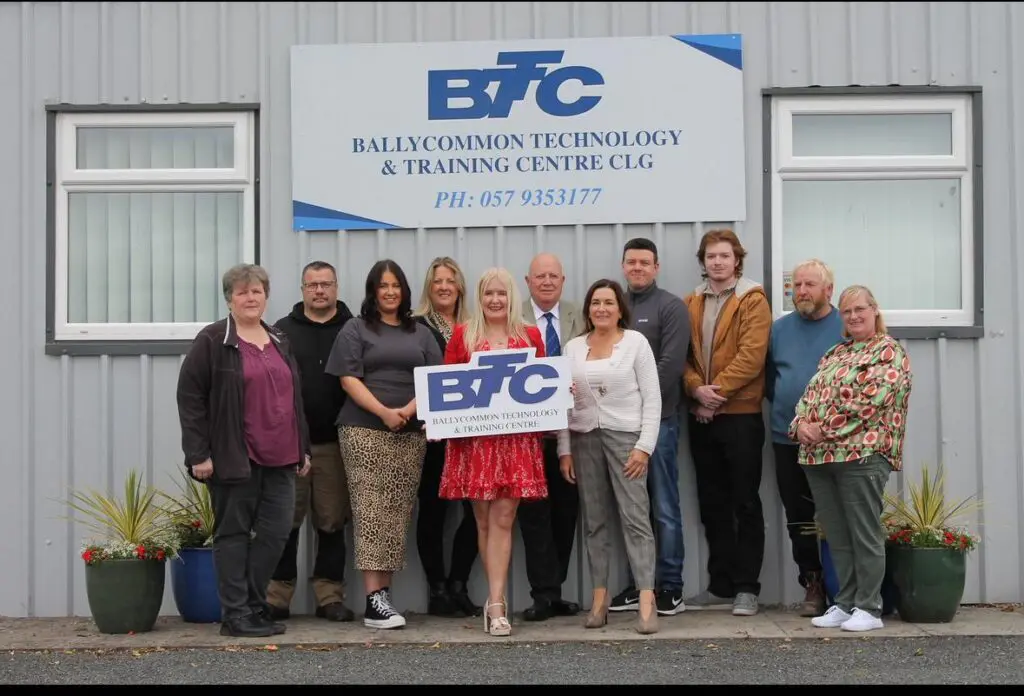It cannot be overstated how impactful community education has been for me. I was introduced to community education when I started attending Youthreach shortly after my expulsion from the mainstream educational system. Unlike the authoritarian, top-down approach to teaching employed within our mainstream schools, the staff at Youthreach were understanding of the complex needs of the students and approached each situation, however challenging, with utmost empathy and compassion. No doubt, the teachers had their hands full trying to manage a class full of teenagers that the mainstream system couldn’t handle, but they managed it by giving space for autonomy and agency.
What did this look like in practice? Well, if I told the teacher that I didn’t feel like doing Maths today, this wasn’t seen as an act of rebellion against their authority and punished. Instead, the teacher would ask if I was okay or why it was that I didn’t feel like doing maths. This allowed me to think about why it was that I wasn’t in the mood to engage, giving time and space for introspection before making my final decision as to what I wanted to do. The result of the compassionate and understanding approach adopted by staff at Youth Reach was that I would usually end up engaging in some sort of schoolwork to keep myself busy. However, if I chose to stand firm on my decision not to engage, this would also be accepted. From my experience, when the authoritarianism inherent in many educational settings was removed, that opened up the space for self-directed learning. The work I completed whilst in Youth Reach was done so because I chose to do it, not because I had to, and that means it meant a lot more to me. This experience gave me a new perspective on education, and this is something that served me greatly in later years.
Unfortunately, the compassion and empathy shown toward me during my time in Youthreach were not enough to make up for the trauma I had endured during the formative years of my life. I had started to consume drugs from a very young age and quickly realised that drugs helped to numb the sadness that I carried within. As the traumatic experiences mounted, I became more impulsive and reactive, which led me to hurt others. The pain that I inflicted upon others just became another layer of pain and guilt that I needed drugs to suppress. The result of this? I fell into a spiral of drug addiction that almost took my life. I have had so many near-death experiences related to my drug addiction, ranging from medical emergencies to being subjected to violent attacks and multiple injuries. Ultimately, I ended up in prison doing a long sentence.
What has this got to do with community education, one may ask. Well, upon entering the prison environment, I had decided that it was finally time to end my drug use and focus on healing through the pain I had been suppressing for all those years. As I’m sure most people are aware, healing from multiple and complex traumatic incidences, feelings of abandonment, loss, shame and guilt is not an easy feat. However, this journey was aided significantly by the courses offered by community education organisations, particularly the Alternative to Violence Project. The Alternative to Violence Project, or AVP, as they’re known in the prison, are an organisation providing community education courses to prisoners aimed at helping us understand our violent tendencies, provide tools to use when triggered, and help us to seek non-violent resolutions to conflict.
Throughout the AVP workshops, there was a lot of talk about transforming power. Whilst I didn’t quite understand what this meant at first, I remember one facilitator telling us it meant to trans-form, i.e. change or alter, power dynamics. He explained that it was literally about changing the form or shape of power. It was about taking situations where we acted based on learned violent behaviours and ways of responding to conflict and providing us with the autonomy and agency needed to reclaim our power, to control our own destiny. The transforming power concept was just one of many that were provided to us within the three weekend modules of the programme. It must also be noted that whilst I speak about the facilitator sharing nuggets of knowledge with the group, the way these workshops were conducted, this was the exception, not the norm, not because the facilitators weren’t knowledgeable, but because community education focuses on pooling the community, or group knowledge together, creating a collective knowledge out of subjective experiences, instead of the mainstream top-down approach where one person offers information to the group.
Another important aspect of the AVP workshops was developing mentalising abilities, therefore, helping participants to see things from the other person’s perspective. This had a profound impact on me. So much so, that having not spoken to my mother for years, during one workshop I made peace with some of the things that had happened, and on the Saturday evening of a 3-day workshop (Friday evening, Saturday and Sunday all day), I rang her and organised a visit for the following week. I have remained in contact with her ever since, and I owe so much to the Alternative to Violence Project for the help they provided on my healing journey.
At present, I have been released from prison a short time ago, having studied towards a degree in Criminology while incarcerated, and I am now starting a Master’s at University College Cork. Working with the AVP inspired my desire to understand violence and its root causes. This work led to me taking part in some wonderful initiatives, such as the Theatre of the Oppressed play in Mountjoy, facilitated by Lynn Ruane and Grace Dyas, and the book – ‘What We’re Made Of’ – that we created about the play. I have also worked with Senator Ruane’s political office on her Canal Community Violence Strategy aimed at addressing violence in the Bluebell area. None of this would have happened had I not had access to community education whilst in prison. This is an example of how powerful an impact community education can have on someone’s life. It must be stated that it is not just me that benefits from these changes, my healing has impacted upon that of my family, my children, my community and society as a whole.
The profound impact of the community education offered by AVP has inspired me to create my own project for people in prison, centred on masculinity and seeking to open men’s minds to the damaging effects of patriarchal gender norms. My workshop seeks to get men thinking about how the patriarchal ideology that teaches men that they must not show emotion and inhibits them from truly loving their partners and children. The workshop also explores the sexual objectification of women and gender violence. Based off my experiences, I have high hopes for this workshop to provide the spark needed for a shift in perspective within the men who partake in our discussions.
In essence, for me, community education provides growth, builds autonomy and agency, and allows the subjective knowledge of marginalised people to become a powerful collective knowledge that can be used to shift perspectives and, when the circumstances are right, even have an impact at state level.
